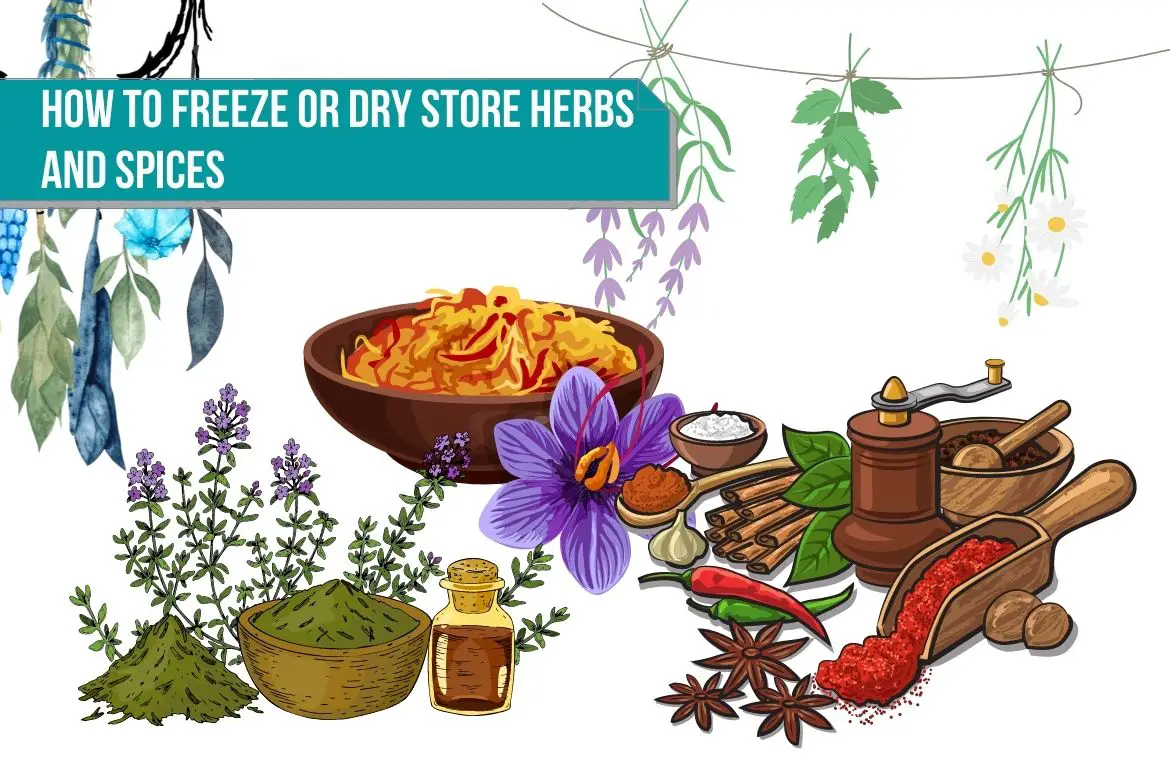Table of Contents
The most effective way to prolong the freshness of your herbs and spices and maximize their flavor is to store them properly. This is true whether you are growing them yourself or purchasing them from a store.
When spices are harvested, they are usually dried immediately. This can be a complicated process and sometimes different conditions are needed to ensure quality.
Rhizomes, fresh peppers, berries, and vanilla beans all require unique drying techniques to achieve proper drying and activation of their flavor compounds. The majority of seeds can, however, be dried in the sun or hung over time in paper bags to dry naturally. The process is especially simple for seeds such as dill, coriander, and fennel.
Spices should be stored in airtight containers and kept away from direct sunlight. They should also be stored in a dark, dry environment.
As for herbs, these can be either dried or fresh, depending on how they are used. Fortunately, drying herbs is an easy and straightforward process.
Dried herbs or fresh herbs
When to use Fresh Herbs ?
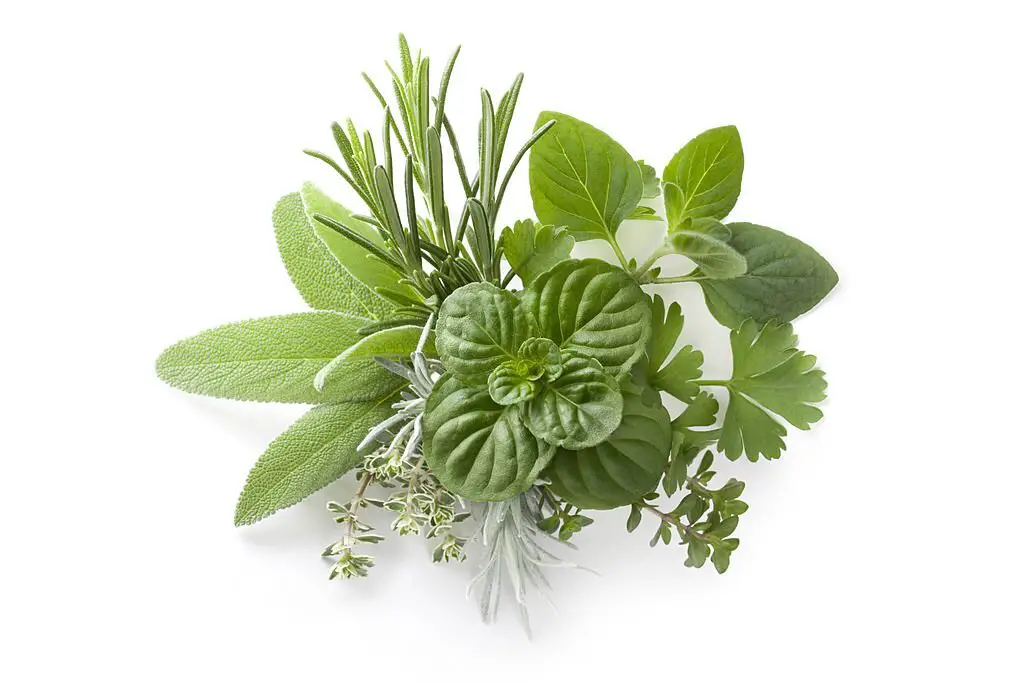
Fresh herbs tend to taste better and be more nutritious.
Some herbs must be fresh before they can be used in a recipe. Basil, chervil, cilantro, and parsley—tender, moist herbs with delicate flavors—should always be used fresh. Drying them diminishes their taste and texture. Adding herbs just before or at the end of cooking is the best way to enhance their flavor, especially if they are out of season and hard to find.
When to use dry herbs ?
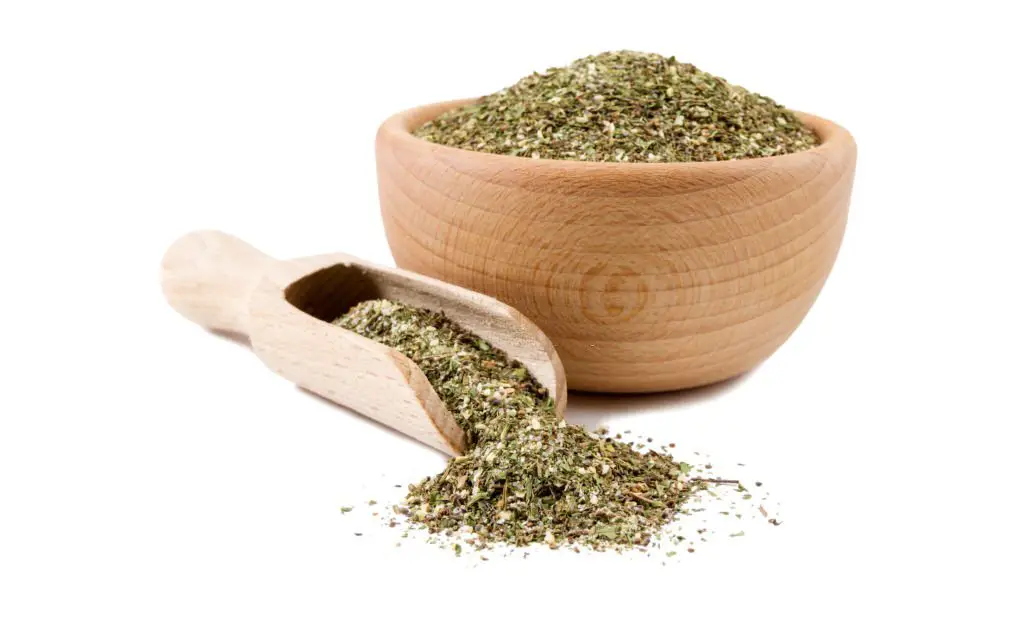
Bay leaves, oregano, rosemary, savory, sage, and thyme are among the herbs that dry well. As opposed to tender, soft-leafed plants like basil and parsley, they have thick, robust leaves and stems.
These herbs are dried so that their robust flavors become concentrated and more aggressive, so even with a small amount, they pack a bigger punch than fresh herbs.
Furthermore, dried herbs can be used as a substitute if you lack fresh ingredients. Winter is a convenient time to use dried herbs, as warm-weather herbs are out of season and typically more expensive.
A great deal of long-cooked food calls specifically for aromatic dried herbs like oregano, rosemary, sage, and thyme. Dried herbs offer more robust flavors in these recipes because fresh herbs simply cannot withstand high temperatures and lengthy cooking times.
There are several factors to consider when deciding whether to use fresh or dried herbs, including growing seasons, affordability, and marketplace accessibility.
You can base your decision on how often you use the herbs. For instance if you love cooking Italian cuisine, opting for fresh basil, oregano and parsley is the way to go.
Use dried rosemary or dill if you rarely cook with fresh herbs. By doing so, you can reduce the expense of growing and maintaining the herb plant along with wastage.

When substituting dried herbs for fresh, use only a third of the amount stated in the recipe. Use 1 teaspoon of dried thyme for every tablespoon of fresh thyme leaves in a recipe. (1 tablespoon = 3 teaspoons)
Similarly, to replace dried herbs with fresh ones, multiply the amount threefold. For instance, 3 tablespoons of fresh oregano is required for every tablespoon of dried oregano.
How to store Fresh herbs and spices?
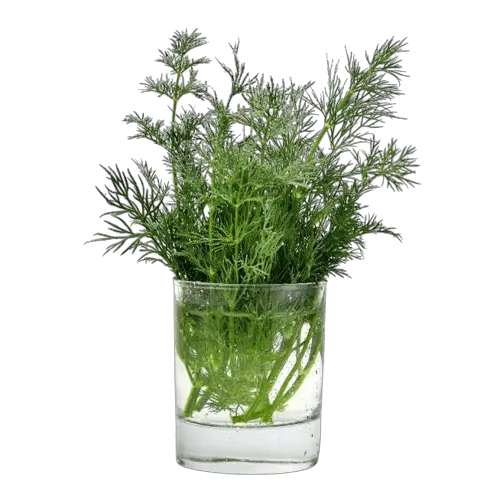
Fresh herbs are delicious, but they start to wilt and lose their color after two days or so. Storing herbs is as simple as wrapping them in damp paper towels, placing them in zip-tight plastic bags, and putting them on the refrigerator door, where the temperature is the warmest.
You will get a few days of freshness from this method, but most herbs can last longer. You can keep them fresh for up to two weeks using this simple method. Strong stemmed herbs, such as parsley, basil, mint, rosemary, and cilantro, do well when being stored like this.
Herbs can also be stored by pruning the stems and placing the herbs in a vase or jar filled with cold water. Ensure that the leaves are positioned above the top of the vase.
Using a plastic bag, cover loosely. Basil can be kept at room temperature on the kitchen counter, while mint should be stored on the windowsill. All other herbs should be stored in the refrigerator. Ensure that the water is changed every day or two, and remove any decaying leaves and stems.
How to freeze fresh herbs and spices?
Herbs such as chives, basil, cilantro or parsley, which are not suitable for drying can be frozen and stored in case you plan to use them in future.
You can freeze the herbs for up to four months to keep their flavor. According to your freezer space and your preferred cooking method, you can freeze the herbs whole, chopped, or pureed.
Whole leaves should be coated with olive oil and then frozen in an air-tight zip lock bag or container on waxed paper. Make sure to place the leaves in a single layer on the wax paper.
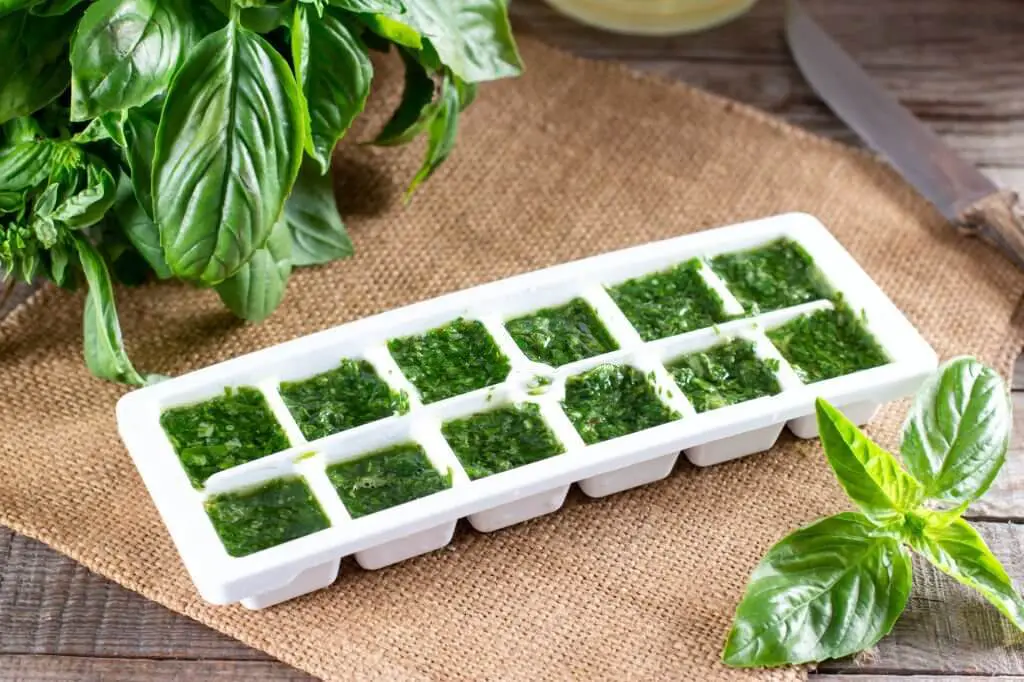
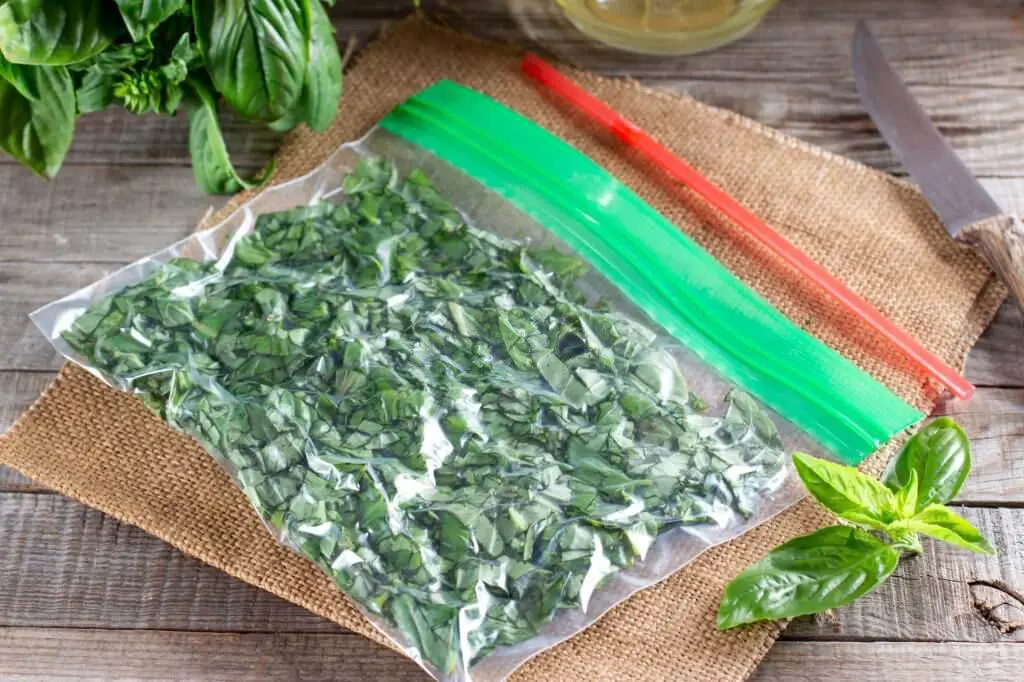
Put chopped herbs in ice cube trays, plastic bags, or small containers with olive oil or water, and store them in the freezer.
How to dry fresh herbs and spices?
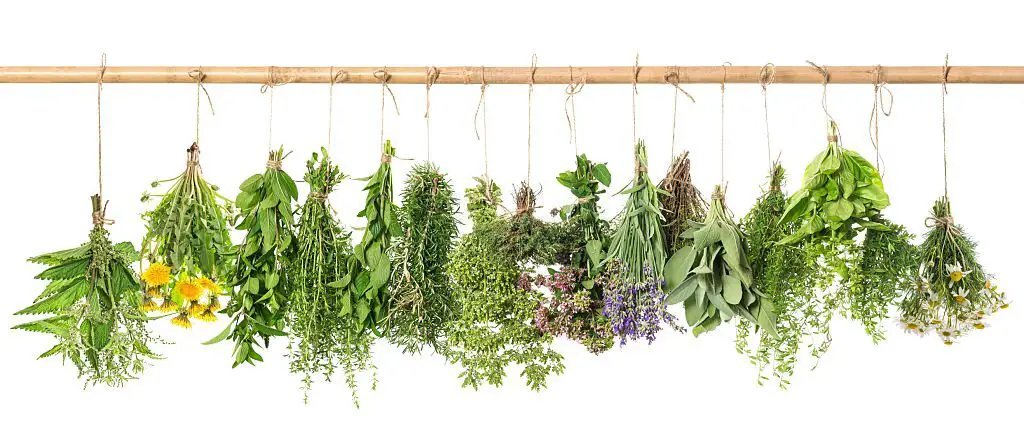
Herbs can be dried easily at home. You should harvest your herbs when they are at their peak flavor and aroma-when the buds appear but before the flowers bloom. Whenever fresh herbs are readily available at your local market, stock up on them if you don’t grow your own.
Air-drying and oven-drying are two methods of drying herbs.
To begin with, if necessary, wash the herbs clean in cold water before patting them dry with a paper towel. Dry them completely on towels
Depending on the choice of your drying method, the drying can take 2-4 hours (microwave/oven dry) or few weeks (air dry).
Air Dry method
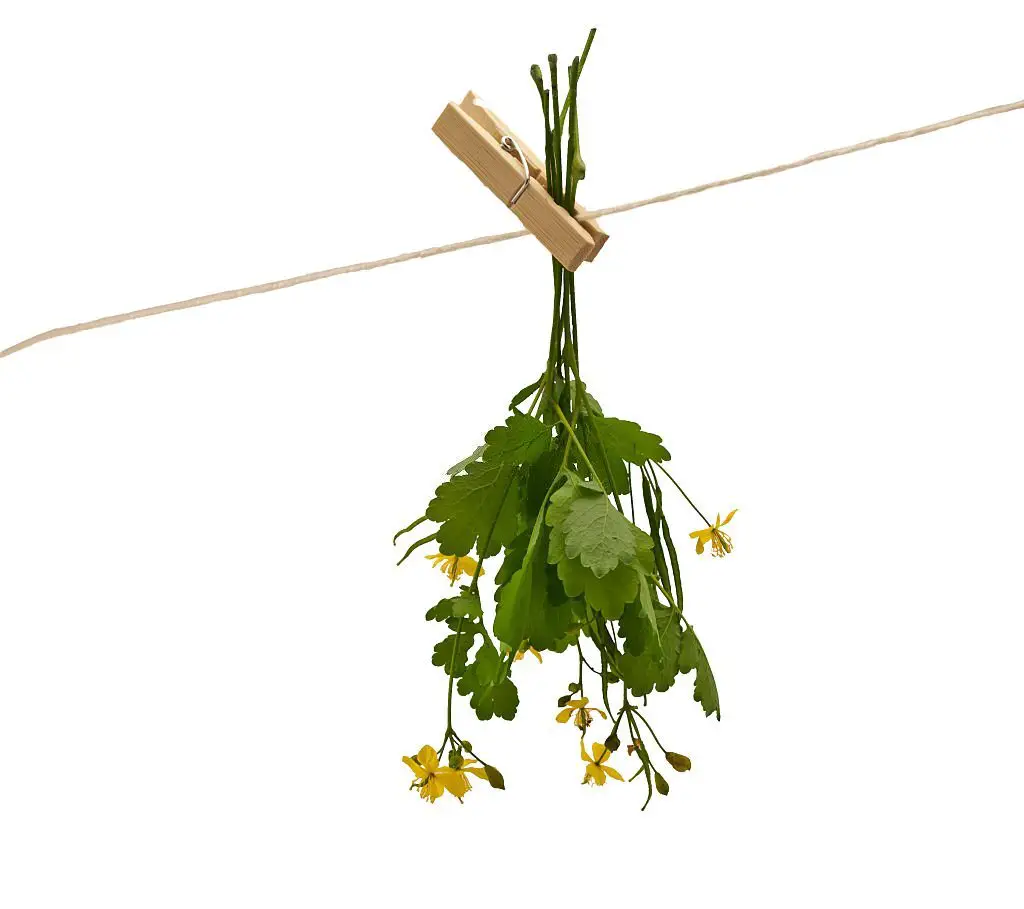
If the herb has a lower moisture content, such as oregano, rosemary, sage, or thyme, then air-drying is the ideal method.
1. Cut off and remove any leaves or stems that are bruised or discolored.
2. Gather five to ten sprigs per bouquet, and bind them with a twist tie or rubber band or a string.
3. A dark, warm, ventilated room is the perfect place to hang bouquets upside down. Hang the herbs upside down so the oils can pool into the leaves to enhance flavor and color. Make sure not to dry the herbs outside in the sun as direct sun light will degrade the flavor and color.
4. Touch the leaves with your fingertips after a week to see if the herbs are completely dry. Pinching or rubbing them should make them feel brittle and crumbly.
Microwave or oven dry method
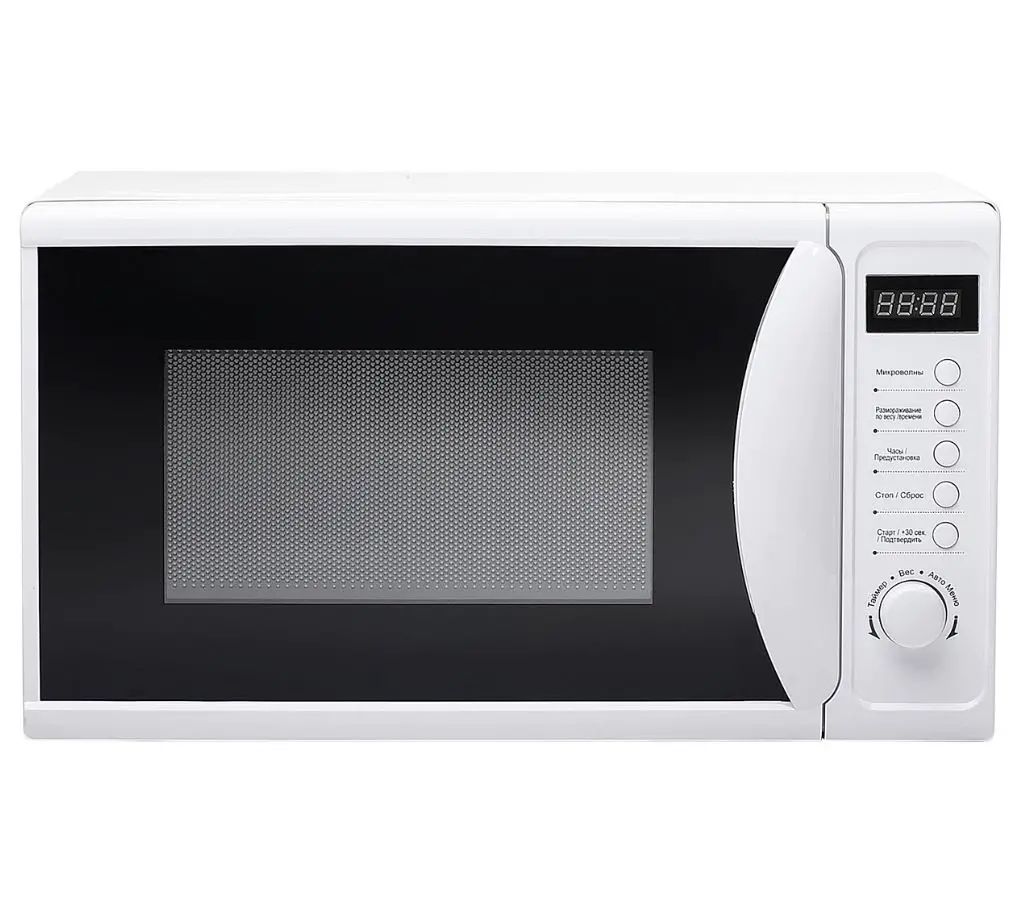
A microwave or oven can be used to speed up the drying process, however, avoid overheating the herbs or they will shed their color, flavor and oils.
You must dry tender herbs like chives, chives, basil, and mint quickly to prevent mold growth.
1. In case of oven, preheat the oven to 180 degree Fahrenheit or 82 degree Celsius.
2. With the door open, bake the stems or individual leaves for two to four hours on a shallow baking sheet.
3. If drying in the microwave, arrange leaves or sprigs in one layer between two sheets of dry paper towel.
4. In the microwave, heat the herbs for 1-2 minutes. Check the herb for crispness. Repeat the heating for an additional 30 seconds if necessary.
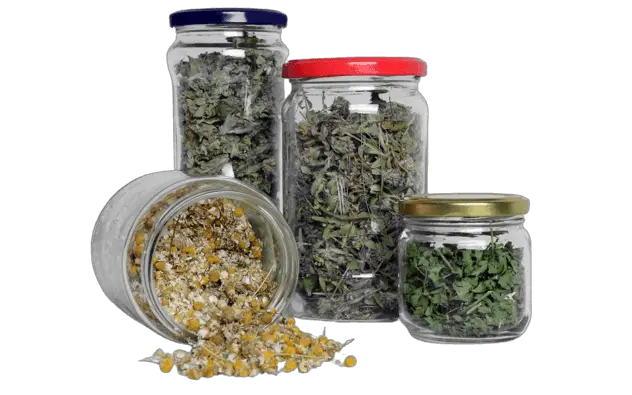
Remove the leaves from the stems after your herbs have completely dried, and store them in an airtight container. Ensure that your herbs don’t have any remaining moisture by checking them regularly for a few days. Moisture can lead to mold growth. You can try drying them again in case you suspect any presence of moisture.

We should note that dried herbs tend to lose their flavor and “expire” after a period of time, usually after eight months to a year. However, some dried herbs can be preserved for as long as two years.
Crush a little bit of dried herb in your hands and smell the herb. They can still be used if the color is still bright and the aroma is strong. To get a flavor that you like, use more than usual if the aroma is a bit lackluster.
Discard the dried herbs if the smell is very weak or nonexistent. Alternatively, you can simply replenish your dried spices every six months to a year so you don’t have to do the guesswork.

